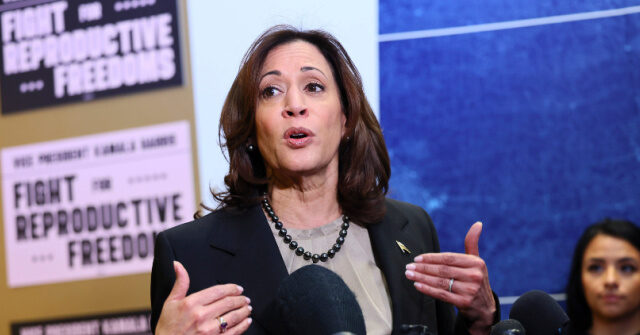In a recent interview with “60 Minutes,” Vice President Kamala Harris made a statement that she believes she was “elected” as the Democratic nominee for President. This claim has been met with skepticism and labeled as misleading. While it is true that Harris won a significant number of delegates in the primary, she didn’t secure any actual votes during the Democratic primary process, raising questions about the validity of her assertion. The nuances of the Democratic nomination process and the implications of Harris’s comments reveal important truths about the political landscape.
The Democratic primary process concluded with President Joe Biden as the nominee, but it was marked by a strategic withdrawal of candidates under pressure from party elites. Prominent figures in the Democratic Party, such as Nancy Pelosi, Barack Obama, and Chuck Schumer, publicly supported Harris after Biden’s departure, which significantly influenced her position within the party. Their alignment indicated a unification of party leadership behind Harris as she sought to consolidate the majority of delegates.
Despite the circumstances surrounding her nomination, during the televised interview, Harris expressed pride in receiving the support of the “vast majority of delegates” and in being chosen as the nominee. She talked about President Biden’s rare decision to prioritize the country’s needs over personal ambition, portraying the situation as a noble sacrifice. However, critics argue that her statements do not accurately reflect the democratic principles behind an electoral process, undermining the legitimacy of her claim to have been “elected.”
The reaction to Harris’s comments highlights the ongoing tensions within political discourse regarding the interpretation of democratic processes. Many observers point out that Harris’s claim is not grounded in traditional electoral outcomes, where actual votes reflect the approval of a candidate by the electorate. Instead, the actions and endorsements of party leaders played a crucial role in shaping the nomination outcome, leading to questions about the fairness of the selection process.
Wendell Husebo, a political reporter with Breitbart News, further critiques Harris’s assertion by contextualizing it within the broader framework of the political environment. He emphasizes the implications of her narrative, suggesting it reflects a deeper issue with how some leaders perceive their mandates and legitimacy. Husebo, who has a background with the RNC and has authored works on political morality, provides an analytical perspective on the intersection of media, public perception, and electoral accountability.
In conclusion, Vice President Harris’s claim of being “elected” as the Democratic nominee raises significant questions about democratic legitimacy and the nature of political endorsements. While party support is certainly a key element of any nomination process, the lack of direct votes in her case presents a challenge to the assertion of being elected. As political narratives continue to evolve, the implications of such statements will resonate significantly in the ongoing discourse around election integrity and the public’s trust in political institutions.

